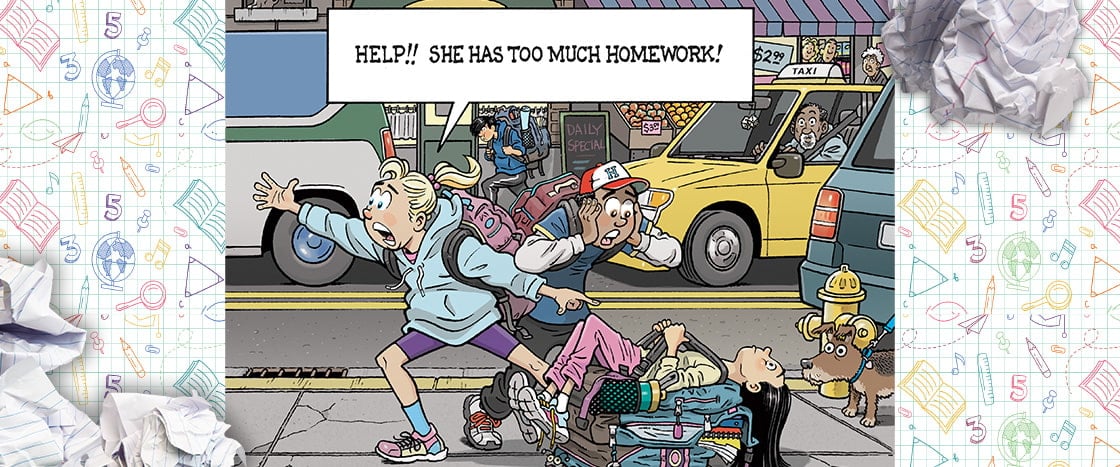Homework. Does reading that word make you want to toss this magazine across the room and run away screaming? If so, you’re not alone. Many kids groan at using their after-school time to practice fractions or spelling. Still, more than 90 percent of students in the U.S. do homework.
That may soon be changing. Over the past few years, some schools across the country have cut down on the amount of homework they give to students. In New Jersey, for example, students in some schools get several homework-free weeknights a year. In states like Massachusetts, Virginia, and California, there are schools where teachers aren’t allowed to assign homework over the weekend or during holidays. Other schools have banned homework altogether.
These changes have many wondering: Is ditching homework a good idea?
Homework. Does reading that word make you want to throw this magazine across the room and run away screaming? If so, you’re not alone. Many kids don’t like using their after-school time to practice fractions or spelling. But more than 90 percent of students in the U.S. do homework.
Over the past few years, some schools across the country have started giving students less homework. In New Jersey, students in some schools get several homework-free nights each year. In Massachusetts, Virginia, and California, some schools don’t allow teachers to give homework over the weekend or during holidays. Other schools have completely banned homework.
This makes people wonder: Is getting rid of homework a good idea?


